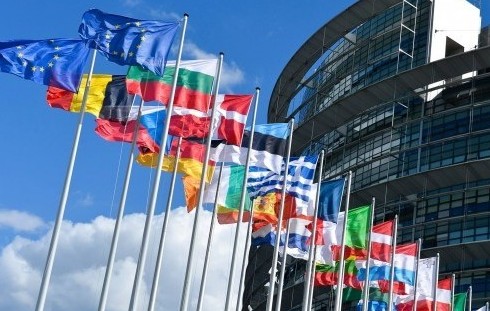ANTITRUST: COMMISSION PROVIDES GUIDANCE ON ALLOWING LIMITED COOPERATION AMONG BUSINESSES, ESPECIALLY FOR CRITICAL HOSPITAL MEDICINES DURING THE CORONAVIRUS OUTBREAK
The European Commission has published a Temporary Framework Communication to provide antitrust guidance to companies cooperating in response to urgent situations related to the current coronavirus outbreak. In this context, the Commission is also issuing a “comfort letter” concerning a specific cooperation project aimed at avoiding situations of shortages of critical hospital medicines. Executive Vice-President Margrethe Vestager in charge of competition policy said: “We need to make sure that there is sufficient supply of the critical hospital medicines used to treat coronavirus patients. To avoid the risk of shortages of essential and scarce products and services because of the unprecedented surge in demand due to the pandemic, we need businesses to cooperate and do it in line with European Competition rules. So to ensure supply we will urgently provide businesses with sufficient guidance and comfort to facilitate cooperation initiatives boosting the production of products in high demand. The temporary framework adopted today explains when and how firms can obtain guidance or written comfort in line with our competition rules.” Today, Commissioner for Health and Food Safety, Stella Kyriakides is also putting forward Guidelines to optimise supply and availability of medicines during the coronavirus outbreak. The Temporary Framework Communication The coronavirus outbreak has given rise to a general supply shock resulting from the disruption of supply chains and a demand surge caused mainly by a steep rise in demand for certain products and services, notably in the health sector. These circumstances risk leading to shortages in critical medical goods, which may worsen as the pandemic evolves. This concerns, in particular, medicines and medical equipment that are used to treat coronavirus patients. Supply emergencies resulting from the coronavirus outbreak can arise also for other essential goods and services outside the health sector. Tackling these exceptional shocks and avoiding shortages in a timely manner may require the swift coordination of companies in order to overcome, or at least to mitigate, the effects of the crisis to the ultimate benefit of citizens. This might in turn require either switching or up-scaling production in the most efficient way. For example, companies may need to coordinate on production stock management and potentially distribution so that not all undertakings focus on one or a few medicines, while others remain in under-production. Such coordination would be contrary to antitrust rules in normal circumstances. But in the context of a pandemic like the coronavirus outbreak, such coordination can, with appropriate safeguards, bring important benefits to citizens. The Temporary Framework is meant to provide antitrust guidance to companies willing to temporarily cooperate and coordinate their activities in order to increase production in the most effective way and optimise supply of, in particular, urgently needed hospital medicines. In particular, the Temporary Framework Communication explains the main criteria that the Commission will follow in assessing these possible cooperation projects. Companies are responsible for assessing themselves the legality of their agreements and practices. However, mindful of the exceptional situation, the Commission has been engaging with companies and trade associations to help them in assessing the legality of their cooperation plans and putting in place adequate safeguards against longer-term anticompetitive effects. In most situations, the oral guidance that the Commission has been giving to companies during the last weeks is sufficient. However, the Commission is also ready to exceptionally provide companies with written comfort (comfort letter) concerning specific cooperation projects that need to be swiftly implemented in order to effectively tackle the coronavirus outbreak, especially where there is still uncertainty about whether such initiatives are compatible with EU competition law. The comfort letter The Commission is also using today the procedure described in the communication for the first time and is providing a comfort letter to “Medicines for Europe”, formerly the “European Generics Medicines Association” (EGA). The comfort letter addresses a specific voluntary cooperation project among pharmaceutical producers – both members and non-members of the association –that targets the risk of shortage of critical hospital medicines for the treatment of coronavirus patients. Generic pharmaceutical companies produce the largest part of the critical hospital medicines that are now urgently needed in large scale volumes to avoid shortages. In the current circumstances, this temporary cooperation appears indeed justifiable under EU antitrust law, in view of its objective and the safeguards put in place to avoid anticompetitive concerns and as long as it remains within the scope communicated to the Commission. No breaches of the competition rules on the back of the crisis At the same time, the Commission underlines that under these exceptional circumstances, it is more important than ever that undertakings and consumers receive protection under competition law. It will therefore continue to closely and actively monitor relevant market developments to detect undertakings, which take advantage of the current situation to breach EU antitrust law, either by engaging in anti-competitive agreements or abusing their dominant position. Background The Commission will apply this Communication as of 8 April and until further notice. For all current information regarding the application of antitrust rules during the time of the coronavirus pandemic, stakeholders can refer to DG COMP's dedicated web page. The website also contains details on how to seek guidance from DG COMP as regards the compliance with EU competition law of specific cooperation initiatives envisaged by stakeholders.______






